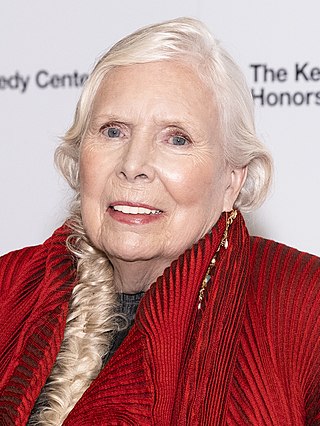
Roberta Joan "Joni" Mitchell is a Canadian-American singer-songwriter, multi-instrumentalist, and painter. As one of the most influential singer-songwriters to emerge from the 1960s folk music circuit, Mitchell became known for her personal lyrics and unconventional compositions which grew to incorporate pop and jazz elements. She has received many accolades, including eleven Grammy Awards and induction into the Rock and Roll Hall of Fame in 1997. Rolling Stone called her "one of the greatest songwriters ever", and AllMusic has stated, "Joni Mitchell may stand as the most important and influential female recording artist of the late 20th century".

The "Battle Hymn of the Republic", also known as "Mine Eyes Have Seen the Glory" or "Glory, Glory Hallelujah" outside of the United States, is an American patriotic song written by abolitionist writer Julia Ward Howe during the American Civil War.

Kathryn Dawn Lang, known by her stage name k.d. lang, is a Canadian pop and country singer-songwriter and occasional actress. Lang has won Juno Awards and Grammy Awards for her musical performances. Hits include the songs "Constant Craving" and "Miss Chatelaine".

Songs of Love and Hate is the third studio album by Canadian singer-songwriter Leonard Cohen. Produced by Bob Johnston, the album was released on March 19, 1971, through Columbia Records.

Recent Songs is the sixth studio album by Leonard Cohen, released in 1979. Produced by Cohen alongside Henry Lewy, it was a return to his normal acoustic folk music sound after the Phil Spector-driven experimentation of Death of a Ladies' Man, but now with many jazz and Oriental influences.
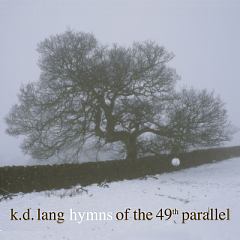
Hymns of the 49th Parallel is the ninth studio album by the Canadian singer and songwriter k.d. lang, released in 2004. It is an album of songs by lang's favourite Canadian songwriters, and also includes a new version of her original composition "Simple" that initially appeared on her 2000 album Invincible Summer.
"A Case of You" is a song by Joni Mitchell, from her 1971 album Blue.
50 Tracks is a Canadian radio program, which aired on CBC Radio One in 2004 and 2005. The show, hosted by Jian Ghomeshi, was a listener vote to determine the 50 most essential songs in pop music history, through a mix of listener voting and selection by celebrity guests.
"Little Green" is a song composed and performed by Joni Mitchell. It is the third track on her 1971 album Blue.

"Hallelujah" is a song written by Canadian singer Leonard Cohen, originally released on his album Various Positions (1984). Achieving little initial success, the song found greater popular acclaim through a new version recorded by John Cale in 1991. Cale's version inspired a 1994 recording by Jeff Buckley that in 2004 was ranked number 259 on Rolling Stone's "The 500 Greatest Songs of All Time".
"Both Sides, Now" is a song by Canadian singer-songwriter Joni Mitchell. One of the first recordings is by Judy Collins, whose version appeared on the US singles chart during the fall of 1968. The next year it was included on Mitchell's album Clouds, and became one of her best-known songs. It has since been recorded by dozens of artists, including Dion in 1968, Clannad with Paul Young in 1991, and Mitchell herself who re-recorded the song with an orchestral arrangement on her 2000 album Both Sides Now.
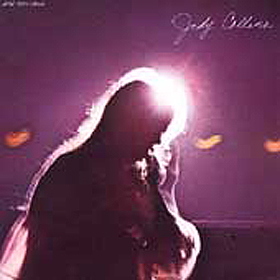
Living is a 1971 live album by American singer and songwriter Judy Collins, released by Elektra Records in 1971. The album is taken from performances on the singer's 1970 concert tour. It peaked at No. 64 on the Billboard 200 charts.
"I Shall Be Released" is a 1967 song written by Bob Dylan.
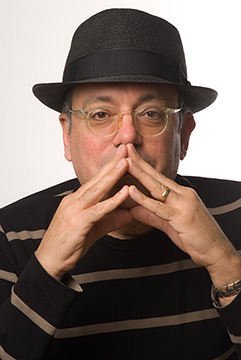
Larry Klein is an American musician, songwriter, and record producer. He is based in Los Angeles.

Contemporary folk music refers to a wide variety of genres that emerged in the mid 20th century and afterwards which were associated with traditional folk music. Starting in the mid-20th century, a new form of popular folk music evolved from traditional folk music. This process and period is called the (second) folk revival and reached a zenith in the 1960s. The most common name for this new form of music is also "folk music", but is often called "contemporary folk music" or "folk revival music" to make the distinction. The transition was somewhat centered in the United States and is also called the American folk music revival. Fusion genres such as folk rock and others also evolved within this phenomenon. While contemporary folk music is a genre generally distinct from traditional folk music, it often shares the same English name, performers and venues as traditional folk music; even individual songs may be a blend of the two.
Sylvie Simmons is a London-born, California-based music journalist, named as a "principal player" in Paul Gorman's book on the history of the rock music press In Their Own Write. A widely regarded writer and rock historian since the late 1970s, she is one of the few women to be included among the predominantly male rock elite. Simmons is the author of a number of books, including biography and cult fiction. Simmons is also a singer-songwriter, ukulele player and recording artist.
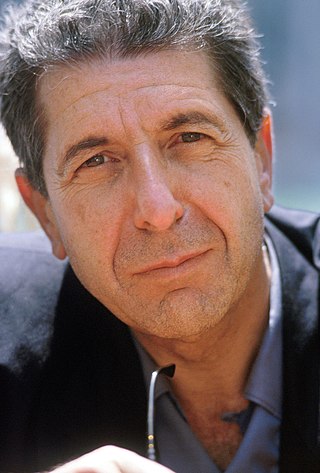
Leonard Norman Cohen was a Canadian singer-songwriter, poet, and novelist. Themes commonly explored throughout his work include faith and mortality, isolation and depression, betrayal and redemption, social and political conflict, and sexual and romantic love, desire, regret, and loss. He was inducted into the Canadian Music Hall of Fame, the Canadian Songwriters Hall of Fame, and the Rock and Roll Hall of Fame. He was invested as a Companion of the Order of Canada, the nation's highest civilian honour. In 2011 he received one of the Prince of Asturias Awards for literature and the ninth Glenn Gould Prize.
"Hey, That's No Way to Say Goodbye" is a song by Leonard Cohen. It was first released in November 1967, in a version by Judy Collins on her album Wildflowers. The following month, Cohen's own version was issued on his debut album Songs of Leonard Cohen.
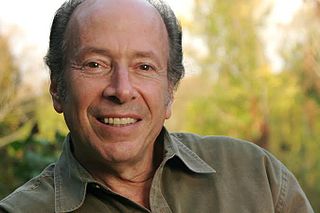
John Lissauer is an American composer, producer, and performer. At the age of 19, he arranged the first recordings of Al Jarreau. Lissauer went on to produce and arrange a pair of Leonard Cohen albums, including the song "Hallelujah" which was inducted into the Grammy Hall of Fame in 2019. He has been a composer or music producer for record albums, films, and radio and TV commercials. Lissauer received a Clio "Campaign of the Decade" award for his work for Polaroid.

Hallelujah: Leonard Cohen, A Journey, A Song is a 2022 feature-length documentary biographical film created by Dan Geller and Dayna Goldfine describing the story of Leonard Cohen, focusing on his song "Hallelujah". The film is based on Alan Light's 2012 book The Holy or the Broken.












